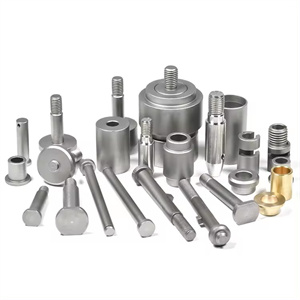Common Materials For CNC Machining
We have been focusing on the field of CNC machining for over 20 years and have rich production and processing experience. The commonly used materials for CNC machining are very extensive, including but not limited to metals, plastics, wood, and composite materials. The following is a detailed classification and summary of these commonly used materials:
1. Metal materials are one of the most common materials in CNC machining, widely used in various fields due to their high strength, good corrosion resistance, and thermal conductivity.
Aluminum Alloy:
Features: Lightweight, high strength, good thermal conductivity, and easy processing.
Application: Aerospace, automotive, electronic equipment and other fields.
Example: Aluminum 6061 is the most common and versatile aluminum alloy, with good strength to weight ratio and excellent machining performance.
Stainless Steel:
Features: High strength, high ductility, corrosion resistance, easy welding, processing, and polishing.
Application: Food processing equipment, medical equipment, chemical equipment, and construction fields.
Example: Stainless steel 304 and 316 are the most common stainless steel alloys, which have excellent mechanical properties and good corrosion resistance, respectively.
Carbon Steel:
Features: High strength, wear resistance, and low cost.
Application: In fields such as mechanical manufacturing and automotive industry.
Example: Low carbon steel 1018 is a universal alloy with good machinability and weldability.
Other metal materials:
Including copper, iron, nickel, etc., each with its unique performance and application scenarios.
2. Plastic materials are also commonly used non-metallic materials in CNC machining, with advantages such as light weight, corrosion resistance, insulation, and low cost.
ABS (acrylonitrile butadiene styrene):
Features: Chemical corrosion resistance, heat resistance, certain surface hardness, and easy processing.
Application: In fields such as electronics and electrical appliances, building models, etc.
POM (Polyoxymethylene/Saigang):
Features: High hardness, wear resistance, and resistance to organic solvents.
Applications: automotive, electronics, medical and other fields.
Other plastic materials:
Including nylon, PE, PP, etc., each with its unique performance and application scenarios.
